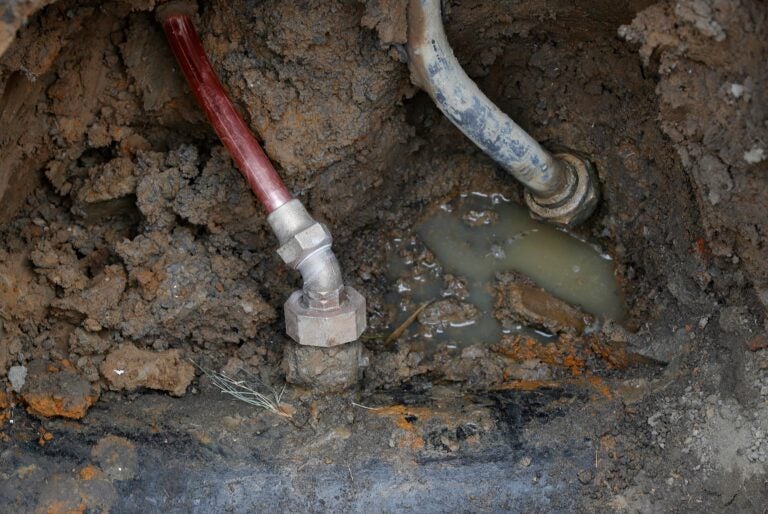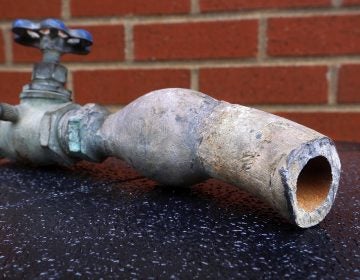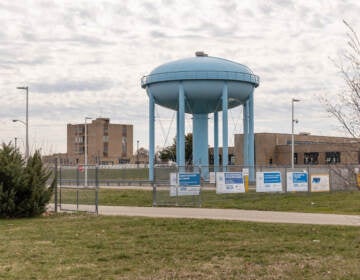Wilmington asks for residents’ help identifying lead pipes
Last week, Wilmington released an inventory of lead pipes across the city. But the city has yet to determine the content of about 25% of its service lines.
Listen 1:16
FILE - A copper water supply line, left, is shown connected to a water main after being installed for lead pipe, right, July 20, 2018, in Flint, Mich. (AP Photo/Paul Sancya, File)
From Philly and the Pa. suburbs to South Jersey and Delaware, what would you like WHYY News to cover? Let us know!
The city of Wilmington, Delaware, is urging residents to help identify lead pipes in the city, as municipalities across the U.S. are required to find and replace lead pipes over the next decade.
Lead pipes can corrode and contaminate drinking water. Exposure to the neurotoxin can cause serious health problems, including cognitive impairment among children.
Last week, Wilmington Water Utility released an inventory of lead pipes as required by the U.S. Environmental Protection Agency. However, the city has yet to determine whether thousands more contain lead.
“It’s really been difficult, because the majority of our assets are underground, and we don’t want to go around digging up the whole city to identify service lines if it’s avoidable,” said Chris Oh, water division director.
So far, fewer than 2,000 of Wilmington’s service lines are confirmed to contain lead. But more could be detected in the coming months or years — the materials of about 25% of Wilmington’s 74,000 service lines are unknown.
The city is asking residents to go to their basements and scratch their pipes to find out whether they’re made of lead. Residents who fill out the city’s lead pipe survey are entered to win a $100 Visa gift card.
“Knowledge is power, and you can better protect yourself, your family and your fellow citizens by participating,” Oh said. “The more information the city has with the service lines, the better decisions we can make with our replacement plan and being able to get funding.”
Although the city uses corrosion control treatment to prevent metals from seeping into drinking water, officials encourage residents to take steps to minimize their risks, such as running their taps for several minutes in the morning, using only cold water to drink and cook with, test their water for lead and use pitcher filters.
The EPA estimates there are more than 9 million lead pipes across the U.S. The Bipartisan Infrastructure Law, approved in 2021, provided $15 billion to help cities replace their lead pipes, but the total cost will be several times higher.
Kelly Williams, commissioner of Public Works, said she is confident the city can meet the EPA’s deadline to replace lead pipes, as long as the federal government continues to provide funding in the future.
“We’ve already received a significant amount of federal money to start the program,” Williams said. “As long as the support is still there at the EPA level and the federal level, we don’t anticipate having an actual issue completing [lead pipe removal] in our city.”

Get daily updates from WHYY News!
WHYY is your source for fact-based, in-depth journalism and information. As a nonprofit organization, we rely on financial support from readers like you. Please give today.







